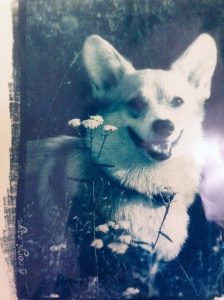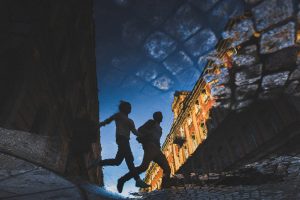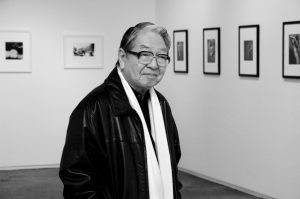allows you to express
10 AMAZING ALTERNATIVE PROCESSES IN PHOTO
 Alternative processes in photography are a whole world filled with interesting printing methods and techniques. Let’s look at a dozen interesting alternative photographic processes that a photographer should try.
Alternative processes in photography are a whole world filled with interesting printing methods and techniques. Let’s look at a dozen interesting alternative photographic processes that a photographer should try.
Infrared photography
Infrared photography captures colors that the human eye is unable to see. You can think of them as invisible magical colors that can only be seen through a special lens or film.
In digital photography, you can use an infrared lens. An analogue may be the use of a color infrared film. This is one of the easiest and most affordable ways to experiment with alternative photography. Continue reading
REFLECTIONS IN PHOTOS. HOW DO THIS?
 Reflections are generated by the light source. However, it should not be displayed in the frame. Consider, for example, a landscape photograph of a small alpine lake reflecting the silhouettes of dark trees surrounding it.
Reflections are generated by the light source. However, it should not be displayed in the frame. Consider, for example, a landscape photograph of a small alpine lake reflecting the silhouettes of dark trees surrounding it.
When creating such a scene, you must be careful not to let the sun get into the frame, otherwise it will be reflected in the lake and thereby simply ruin the picture. The sun will significantly reduce the reflection of the main element and the contrast of the scene, which will make your reflection almost completely unreadable.
Based on the particular scene being shot, adjust your own position or the position of your camera, make sure that you do not let the sun into the frame.
Reflections in photographs. How do they do it? Continue reading
EIKO HOSOE: MODERN JAPANESE PHOTO. CONFIDENCE ON THE VERGE OF FOL
 Japanese contemporary art is inextricably linked with the name Eikoh Hosoe. The largest representative of the avant-garde of the 60s of the XX century, the director and photographer throughout his creative life and career, conducts experiments unimaginable for traditional society and bold even by today’s standards.
Japanese contemporary art is inextricably linked with the name Eikoh Hosoe. The largest representative of the avant-garde of the 60s of the XX century, the director and photographer throughout his creative life and career, conducts experiments unimaginable for traditional society and bold even by today’s standards.
The body, as the physical embodiment of the soul and emotionality
A friend and like-minded person, Yukio Mishima, conducts the same research on the field of photography as the writer does in literature. This is an analysis of the “dark principles”, erotic emotionality, hidden desires and strength, irrationality and obsession, which cause a strange but invariably strong response from an outside observer. Continue reading




